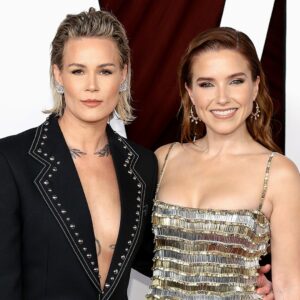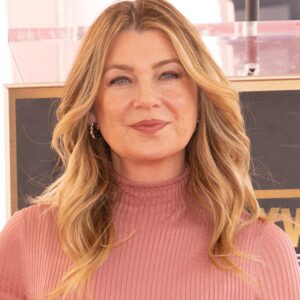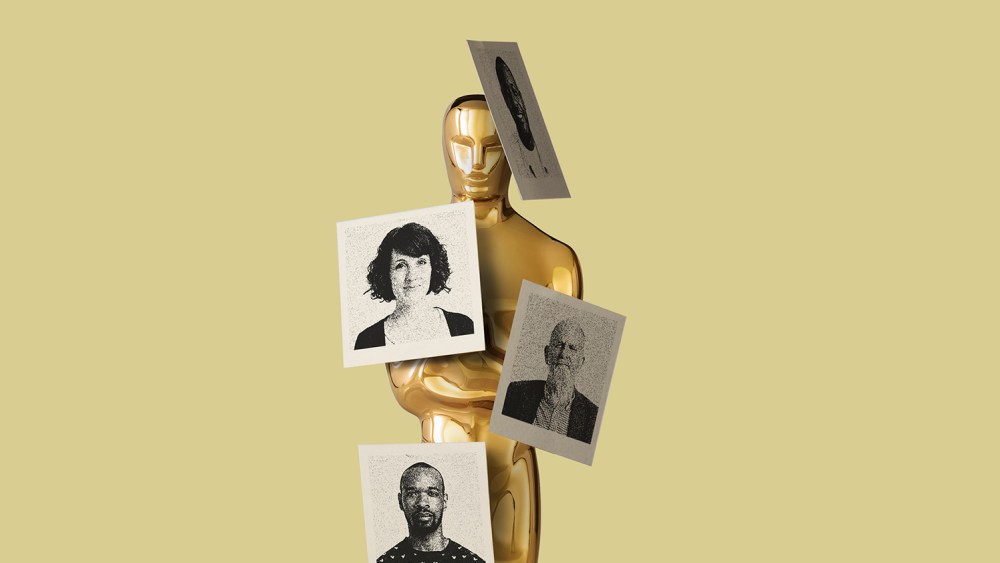Casting director Sarah Finn has been Marvel’s longtime secret weapon: She’s the one fielding thousands and thousands of auditions to populate Hollywood’s biggest film franchise. Over the years, she’s convinced A-listers like Robert Downey Jr. and Paul Rudd to don spandex as Iron Man and Ant-Man, while launching new stars like Chris Hemsworth, who was just a hunk from Aussie soaps before he became Thor, and Simu Liu, a Canadian sitcom actor before Shang-Chi. Finn is almost as responsible as studio chief Kevin Feige or “Iron Man” director Jon Favreau for assembling the Avengers, but without the recognition, because her job operates outside the public eye.
“When casting is done well, people think that person fell from the sky,” Finn says. “Actually, we read 2,500 people to arrive at Tom Holland for Spider-Man.”
Casting directors are used to their work being overlooked. It’s kind of the point. Great casting choices have to go under the radar; if audiences are thinking about what could have been, it probably means an actor has been miscast in the role.
That anonymity is changing though. After operating in obscurity, casting directors are finally getting recognition in the form of an Oscar. It took decades of lobbying, but a new award for best casting — the first category to be added in 25 years — will be handed out at the 2026 ceremony.
“The Academy has always prided itself on presenting the filmmaking process with accuracy,” says David Rubin, a longtime casting director and former Academy president. “There was a growing realization that the absence of casting was an omission.”
Casting is a comparatively new craft when it comes to making movies. During Hollywood’s Golden Age, in the 1930s and ’40s, there wasn’t much need for casting directors. Grace Kelly, Humphrey Bogart and other picturesque stars were signed to individual studios, and the likes of MGM and Warner Bros. employed a stable of character actors who would round out the cast of a film. Not until the studio system collapsed around the 1960s was it someone else’s responsibility to be aware of the global talent pool and collaborate with filmmakers to populate their movies.
That’s when a new group of professional scouts, including Marion Dougherty, Lynn Stalmaster, Mike Fenton and Juliet Taylor, helped to elevate the profession to a creative one, discovering unknown and unconventional performers like Al Pacino, Robert De Niro and Meryl Streep and putting together the ensembles for classics like “Grease,” “In the Heat of the Night” and “Annie Hall.”
“Mike Fenton, Juliet Taylor and Marion Dougherty would probably each have five to 10 Oscars by now,” Bernard Telsey, who recently led the global search for “Wicked,” says wistfully.
Casting directors want the Oscar category to inspire young people to pursue a career in their field. Pretty much everyone today who is prominent in casting was an aspiring director or actor and fell into the profession. After all, there weren’t college degrees or graduate programs that focused on what they do. Only through internships, fellowships or training programs at casting offices, training programs at the field’s most prominent organization Casting Society (CSA) — or going through the audition process themselves — did they gain exposure to what’s now their calling.
“The Oscar is going to give a lot more visibility to the profession and help demystify the process,” says Finn.
One thing casting directors would like to clear up — they’re not casting agents. Though they negotiate the contracts for actors, casting directors don’t take commissions for hiring. Nor do they share in a film’s profits — they’re paid a flat fee for their work.
There are other misconceptions that come with a job that’s mysterious.
“I get frustrated because everyone thinks they’re a casting director,” says Avy Kaufman, whose many film credits include Ang Lee’s “Life of Pi” and M. Night Shyamalan’s “The Sixth Sense.” “Someone will call me and go, ‘Have you thought about that person?’ I don’t think that many casting directors would call the costume department and go, ‘I think they should wear that dress. Have you thought about that?’”
“Wicked” filmmaker Jon M. Chu likens casting directors to storytellers. “Putting a cast together is setting the tone of the movie,” he says. “Casting directors know the power of what an actor is bringing beyond their name.”
Being a great casting director requires curiosity and empathy. Casting directors also have to be diplomatic, balancing the wants of directors, studio chiefs, agents and film financiers. Patience is helpful, too, because it’s not uncommon to start the casting process over if an actor drops out of a project due to scheduling conflicts.
Tom Holland auditioning to play Spider-Man
Courtesy Image
“We’re working to find the right person who can build consensus and fit so many needs,” says Destiny Lilly, a casting director at The Telsey Office and CSA president. “We need someone who is great but who can also sell tickets. We’re constantly walking the tightrope of art and commerce.”
It can feel like a 24/7 commitment. When they’re not watching tapes or facilitating chemistry reads between potential co-stars, casting directors are attending film festivals, reading movie reviews, catching up on TV shows, schmoozing with talent representatives, checking out acting showcases and going to the theater.
“I can never really turn off my casting brain,” says Rich Delia, whose recent projects include “King Richard” and “No Hard Feelings.” “If I’m walking down the street and see someone with an interesting look or energy, I’m taking note and going, ‘Would you be interested in auditioning for this?’ It never stops.”
Casting directors aren’t immune to the challenges facing the entertainment industry. Studios and networks are making fewer movies and television shows, which means fewer opportunities for work. When projects get the greenlight, executives are trying to save money amid rising production costs. In the case of casting directors, they’re being given as little as six weeks to cast before a film starts shooting; they used to get around 12.
“Casting isn’t a cushy job,” Lilly says. “You’re going from show to show. If the show you’re working on gets canceled, you’re in the same place as everyone else, looking for the next project.”
He should be in this movie,” Telsey scrawls on his notepad.
On this windy winter afternoon, Telsey has been on Zoom with three potential actors for “CODA” director Siân Heder’s next film. “We really enjoyed your tapes and just wanted to get to know you,” he tells one of the finalists with an encouraging smile. Throughout these conversations, Telsey is fervently multitasking — jotting down thoughts, enthusiastically nodding at the performer on the other side of the camera and texting with Heder, also on the call.
It’s part of the new reality for casting directors, whose jobs have gone increasingly digital since the pandemic. Now, it’s customary to host nervous actors in Zoom breakout rooms instead of office lobbies.
Technology has broadened the talent pool because people aren’t limited to the traditional hubs of New York, Los Angeles and London to put themselves up for parts. And it has added flexibility for anyone with a day job or parents without child care. In the case of Heder’s movie “Being Heumann,” a drama about influential disability rights activist Judy Heumann, the process is more inclusive because actors with disabilities don’t need to travel to read in the room.
“It allows us to see that many more actors than we’d normally see in a day because bring it on,” Telsey says.
On the other hand, casting directors think of themselves as actors’ advocates, and Zoom has cramped their ability to give notes in real time — there’s just not as much opportunity to offer feedback to thousands of performers before they’re rejected.
“For one of my last open calls, we had 22,000 emails. We look at every single one in case it’s the one,” says Jenny Jue, whose credits include Quentin Tarantino’s “Inglourious Basterds” and Bong Joon Ho’s “Okja.” “Actors often feel like, ‘I’m sending this tape into the ether, and I never hear anything back.’”
Every casting director has a slightly different process and preference for auditions. But most of them say that it’s easier than you’d imagine to pick the standout while sifting through hundreds of takes on one scene.
“There’s almost a sixth sense,” says Kaufman. “When you hear multiple people reading the same line, it becomes apparent. You either believe them or you don’t. It’s kind of simple.”
Delia likes to be surprised, so he’s never too beholden to the character descriptions written into the script. “I love to have a completely open mind,” he says. “A role may say on the page that it’s a certain ethnicity, age or gender, but I try to see beyond that unless it’s dictated by the story.”
That’s something the actor Andrew Barth Feldman, whom Delia discovered for the 2021 comedy “No Hard Feelings,” has learned from auditioning. He says he’s always in callbacks for the same projects as fellow Gen Z breakouts Cooper Hoffman, Gabriel LaBelle and Joshua Bassett.
“It’s hilarious, because we’re all so different,” Feldman says. “It’s proof that casting directors aren’t trying to fit a mold.”
Jue looks for actors who can incorporate her feedback. “I can tell right away if someone is green but can take direction,” she says. “That’s key because the second I ask, ‘Can you change this?’ and they can’t do it, I don’t feel comfortable sending them on set. Actors need to be amenable.”
A common refrain in the process is whether a person feels “in the world” of the movie. On Marvel’s “Eternals,” for example, Finn and her team used shorthand to signal the actors who could conceivably play immortal beings.
“We called it the Babylon test,” Finn shares. “Some actors have a timeless quality, and some feel contemporary. We wanted actors who could handle any time period.”

Ariana Grande and Cynthia Erivo auditioning for “Wicked”
Casting directors are divided about whether actors should use costumes and props during auditions.
“I’m looking for simplicity, honesty and authenticity,” says Finn. “Nobody needs to show up in spandex to audition for Marvel.”
Lilly offers, “Dress to suggest. I don’t need a full Elizabethan outfit, but maybe don’t wear shorts and a tank top for a period piece.”
On some films, casting directors are building an ensemble around stars who are already attached to the project. With “Barbie,” Margot Robbie was a producer and brought in director Greta Gerwig, who wrote Ryan Gosling into the script. But someone had to find the rest of BarbieLand’s citizens. Recently, Jue was tasked with finding several actors to join Vince Vaughn and James Marsden in the upcoming comedy “Mike & Nick & Nick & Alice.”
“Our job is to say, these are guys of a certain age. How can we create diversity within the rest of the cast and make it fresh and fun?” Jue asks. “That’s something you’re constantly thinking about because nobody is cast in a void.”
That’s why Rubin believes that movies with leads already on board shouldn’t be any less deserving of awards recognition.
“Casting involves dozens and dozens of characters on-screen,” he says. “Even a film with the greatest movie stars can be undone by supporting players who are ill suited to that story.”
Casting directors are meeting with Academy members before the Oscars, trying to educate them on how casts are greater than the sum of their parts and only through a methodical process can the result — a perfectly cast role — seem so effortless.
“Everyone thinks, ‘I read this book. I know who should be in “Hunger Games,”’” Finn says, “and that’s part of the fun. But it’s a craft. It’s not just like, ‘I thought of a name. Let’s put that person in the movie.’ There’s a deep understanding of character, script and the needs of putting an ensemble together.”
And the exhaustive search? It’s worth it, because there’s always a chance of finding the next A-list star.
“I have my own kids, and I love them,” Finn concludes. “But the first time I saw Tom Holland step out of a car and hundreds of people were screaming, I felt like a proud mom.”
Read the full article here








